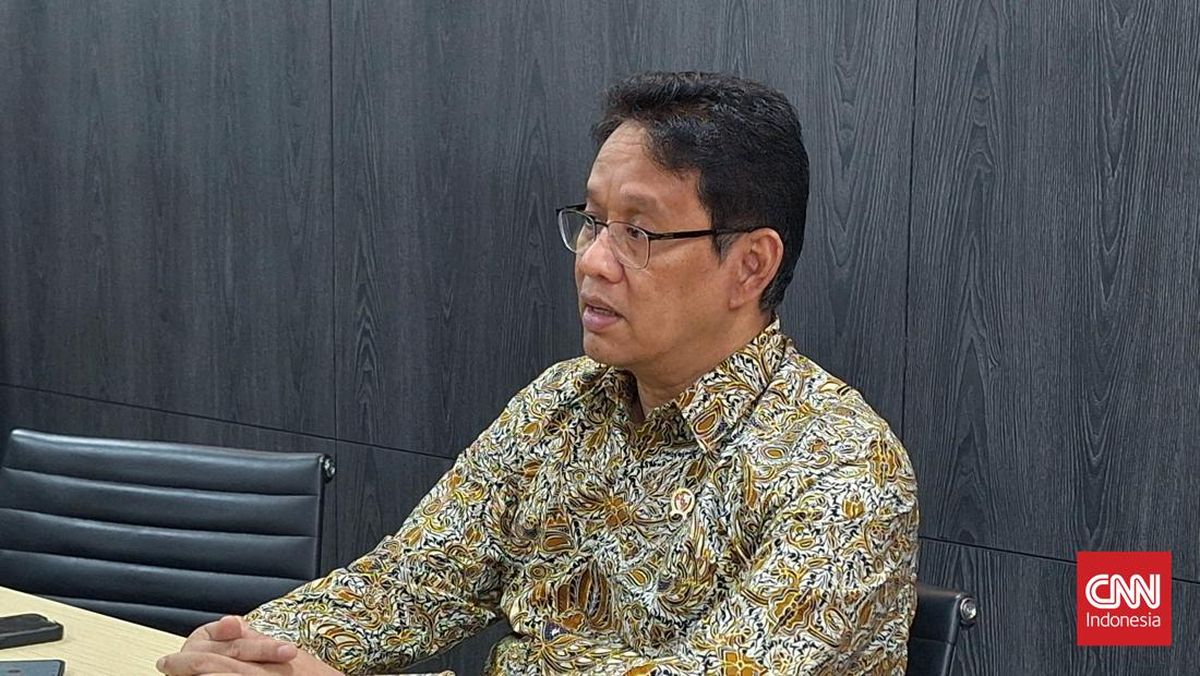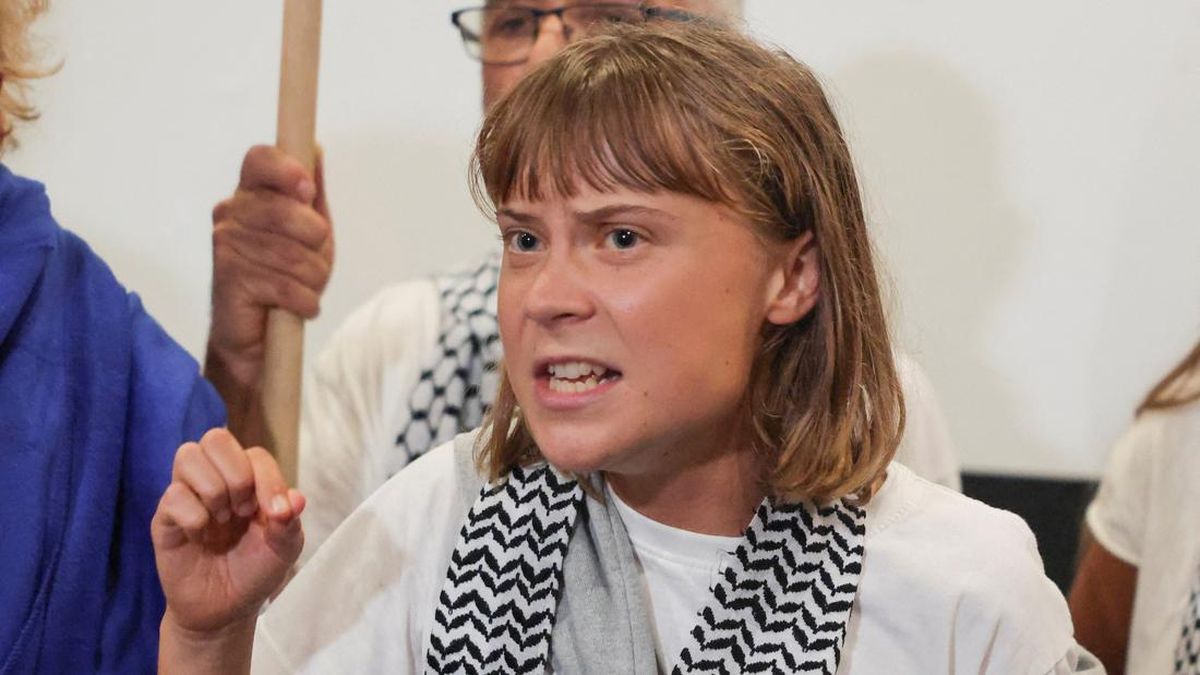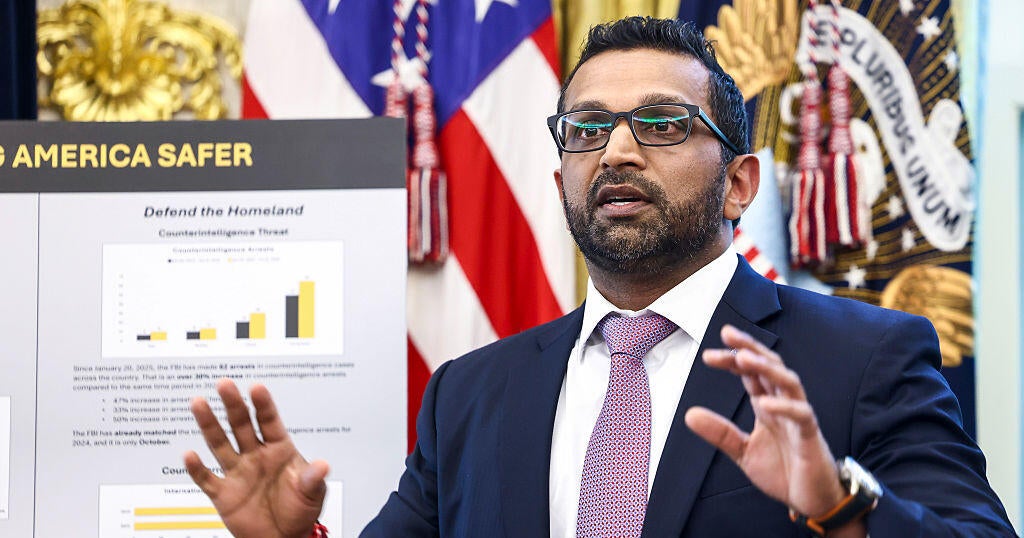In a world of unfathomably constant communication, journalist and TV host Marc Fennell reckons open discussion of sensitive or tricky topics is suffering. “There’s a sort of era of fragility at the moment,” he says. “People are quite happy to have opinions online but unbelievably fragile when asked questions in person.”
If TV has a role to play, there are plenty of shows delving into sensitive topics, from You Can’t Ask That (ABC) to Where Are You Really From? (SBS) and Fennell’s Stuff The British Stole (ABC) and The Secret DNA of Us (SBS).
Investigative documentaries such as The People vs Robodebt (ABC) or studio discussion shows such as Insight (SBS) plumb real life. But what about a show that does it in a less formal setting? What if a TV show invites guests to discuss hot-button topics around the dinner table?

Marc Fennell hosts the dinner party discussion show, Tell Me What You Really Think.
Enter Tell Me What You Really Think, a four-part SBS documentary series featuring 20 diverse Australians having a three-course meal while discussing menopause, ADHD, obesity and ageing.
Hosted by Fennell, each episode features four groups of five people, each selected for their connection to the topic and talking between bites from poke bowls and quaffs of drinks.
In episode one, titled ADHD, table guests include ADHD Australia board member Andrew Thompson, true crime podcaster Emily Webb and Alone Australia season two winner Krzysztof Wojtkowski. Old features artist Lindy Lee, sex therapist Linda Kirkman and drag performer Stan Munro, and Fat brings together TikTok creator Mark Azzopardi, former Olympic swimmer Joanna Fargus and body positivity activist Marc Mariano, among others.
Fennell, speaking from India while filming his ABC series, Stuff the British Stole, says the show is as much about dismantling assumptions as it is about difficult discussions, having a laugh and being curious and honest.

Marc Fennell with the guests in the ADHD episode of Tell Me What You Really Think.
“To me, it’s like the song from Hamilton,” he says. “Being in the room where it happens. It’s all about the energy of different people talking together because it’s unpredictable. Strong-held beliefs can sometimes fall away when you’re presented with somebody with a different life experience. Or people can double down and say, ‘No, this is my truth.’
Loading
“We cast people who were strong in themselves. And people disagreed with each other, or they debated each other. There were perspectives in there that I’ve never encountered before. But somehow everyone still left happy. We all emerged, if not necessarily smarter, then certainly wiser.”
Fennell says everything from the lighting to the food choice in Tell Me What You Really Think was designed to engender warmth, compassion and humour. The participants are also at a round table, so everybody is seated across from each other as they speak.
“With a lot of journalism, in an effort to look hard and serious, we forget sometimes to be human,” Fennell says. “Maybe it’s the kinds of shows that I make, but it’s always about never forget that we’re humans first. You can still ask challenging journalistic questions that need to be asked, but that doesn’t mean you have to lose your sense of humour or your sense of humanity.”
In two particular episodes, Fat and ADHD, the focus swings on Fennell, too. He undergoes tests and hears from medical professionals about his health, including an evaluation that he likely has ADHD. Fennell is filmed as a psychiatrist explains his diagnosis and the host’s emotions are clear.

Host Marc Fennell with the women in Tell Me What You Really Think’s menopause episode.
“It was a very genuine reaction,” he says. “I’m not that good an actor. It’s been a relatively recent thing for me, but I think if you’re going to ask other people to be vulnerable, then you owe it to them, and to the audience, to be a bit vulnerable yourself.
“I normally like to keep my personal life very much out of my work and make it about the story, apart from doing Who Do You Think You Are? But it felt like it was only fair to do that in this context.”
Loading
The episode Fennell was most hesitant about was the discussion around menopause. Guests include author Kathy Lette, women’s health and menopause physician Dr Liz Rayment, Chinese medicine practitioner Anissa Au, menopause advocate Julia Browne and journalist Shelly Horton. As discussion began – from menopause as a taboo topic to the veracity of medical and herbal aids and the proliferation of self-appointed celebrity menopause advocates – Fennell had to find his footing.
“It’s a room full of incredibly smart, articulate women and here’s this guy asking them questions,” he says. “I felt quite self-conscious and awkward about it. But then Kathy Lette says she’s actually so glad a man is there listening because, in her words, ‘If the men in our lives had bothered to ask any questions about our menopause, I might still be married.’ Which I thought was quite funny.
“It’s looking at how men will often view menopause as a women’s thing but, hold on, it’s 50 per cent of the population. Men cannot put their head in the sand. Listen to what’s going on in women’s lives. By the end of the episode, I felt like I understood what was going on in the lives of people experiencing it around me. I really do hope that men watch it.”
Loading
He is also keen to hear what other topics people would like discussed in future series.
“Would it be better to stick with health, or should we look at socio-economic things?” he says. “Should we look at historic things? I hope people watch this show and recognise something for them, something that helps them think of a friend differently. Television can be the most incredibly human of mediums and I think a show like this showcases that quality quite well.
“And, in this day and age, it’s also good to be reminded that disagreement is not an existential threat. We can have different experiences and still explain that with respect and humour.”
Tell Me What You Really Think airs at 8.30pm on Tuesdays on SBS and SBS On Demand.
Find out the next TV, streaming series and movies to add to your must-sees. Get The Watchlist delivered every Thursday.


















































